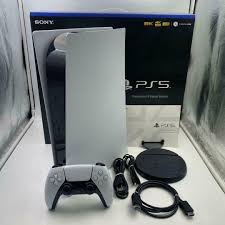This year's Google I/O keynote was heavy on hardware announcements, which is unusual given that the event is typically focused on software and services. The most exciting news was that Google plans to return to the Android tablet market next year, as well as release its first smartwatch, the Pixel Watch, later in 2022.
Google provided several explanations for its decision. The most intriguing of these was a comment from Google's VP of product management, Sameer Samat, who discussed the benefits of a tablet device for the Pixel ecosystem in general. "I believe consumer expectations have shifted over time," Samat said. "While the phone is undeniably important, it's also becoming clear that there are other device form factors that are complementary and also critical in a consumer deciding which ecosystem to buy into, and which ecosystem to live [in]."
In other words, building a Pixel tablet (as well as a Pixel Watch) is important not just because Google wants customers to buy these specific devices. It's also critical if Google wants them to invest in the entire Pixel ecosystem. Pixel phones will continue to be popular, but Google wants people to know that once they've purchased a Google smartphone, there's a slew of accessories available, including smartwatches, earbuds, and tablets. And once they've found the perfect Pixel accessory, they're likely to stick with the smartphone brand for their next upgrade.
It's a similar strategy to Apple's (often aggressive) "walled garden" approach to becoming a $2 trillion company. iPhones can delegate a variety of routine tasks to Macs, which can then be used to control iPads, which work best with AirPods. Apple Fitness workouts can be controlled via an Apple Watch and broadcast to an Apple TV. You and your friends must all have iPhones to use iMessage. You get the picture.
Apple is so confident in its ecosystem that it will sometimes prioritize it over the quality of its individual products. The HomePod is an example: designed only to work with iPhones, it would have been more useful and likely sold more units if it could stream over Bluetooth rather than Apple's own AirPlay standard. However, as analyst Benedict Evans observed at the time, the HomePod's purpose was likely never to sell in large numbers, but rather to provide any iPhone owners who purchased it with yet another reason to stick with Apple for their next phone purchase.
I don't believe Google would ever consider erecting similar barriers around its garden. The company's core advertising business is based on working at a scale that rivals even Apple, and this open approach has allowed Android to control an estimated 75 percent of the global smartphone market. Google has been working for years to improve Android phone compatibility with Windows, and Wear OS is designed to be compatible with iOS. The introduction of a Google-branded smartwatch and tablet will not change this.
Google's approach is likely to be more subtle, similar to Apple's approach with its AirPods. When paired with an Android phone, Wear OS is already at its best. And Google's software is frequently designed to be cross-platform, such as ChromeOS's support for running Android apps. However, after years of leaving hardware to others, Google appears to be shifting its focus to a combined hardware and software approach. The Pixel Watch will almost certainly work with Android devices (iPhone support is less certain), but I'd be surprised if it didn't perform best with Pixel phones.
However, it appears to be reaching the limits of this approach, not least because it is competing with the ecosystem ambitions of other companies. I'm referring to Samsung, the world's largest manufacturer of Android tablets and, as of last year, the most visible Wear OS smartwatch manufacturer. Despite using Google's operating systems, Samsung's devices have always steered users toward the company's own ecosystem.
Consider last year's Galaxy Watch 4, in which Samsung used Wear OS rather than its own Tizen operating system on one of its smartwatches for the first time. Although it appeared to be embracing Google's ecosystem, the smartwatch was always loyal to Samsung's. It used Samsung Pay rather than Google Pay, Bixby rather than Google Assistant, and came with Samsung apps rather than Google's equivalents like Calendar, Calculator, and Contacts. It can sync settings from Samsung phones and uses the Samsung system to automatically switch between Galaxy-branded earbuds.
"If you own a Samsung, the Galaxy Watch 4 is a fantastic smartwatch." If you aren't already, the Galaxy Watch 4 practically forces you into Samsung's ecosystem," my former colleague Dieter Bohn wrote in his review.
The same is true for tablets. When my colleague Dan Seifert reviewed the Tab S8 earlier this year, he discovered a slew of useful features that were only relevant to users of other Samsung devices. Galaxy Buds would switch between the tablet and a Samsung phone automatically, and the tablet could also activate the phone's mobile hotspot feature. "After years of not seeing a compelling reason to buy an Android tablet," he wrote, "I must admit that Samsung has presented a compelling pitch this time around — provided you are already in the Samsung Android ecosystem."
Samsung's strategy neatly demonstrates where the incentives are for consumer technology companies these days. They could, of course, design their products to work seamlessly with all of Google's hardware, apps, and services. Or, if you're the world's largest smartphone manufacturer, you could try leveraging some of your existing customer base by encouraging them to purchase a smartwatch or tablet to complement their phone. And who will consider switching to a Google Pixel or a OnePlus once they've been outfitted with a full suite of Samsung technology?
Google has attempted to pair a limited hardware focus with broad software support since the launch of its Pixel lineup. But ecosystems matter, and if you don't control both your hardware and software in 2022, another company will do it better — and maybe even park its platform right on top of yours.









